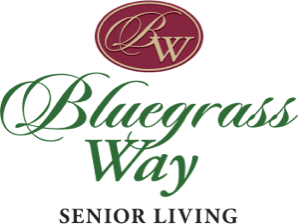Key Takeaways
- Assisted living supports seniors who need help with daily tasks while still maintaining independence and social engagement.
- It’s a good fit for seniors who need occasional assistance, enjoy community life, and have manageable health concerns.
- Assisted living may not be suitable for older adults who need continuous supervision, advanced medical care, or are recovering from frequent emergencies.
- Independent living is a preferred option for seniors who are fully independent but want convenience and community without daily care.
- Memory care is designed for those with cognitive conditions like dementia or Alzheimer’s, offering specialized environments and support.
Who Is Assisted Living For?
Choosing the right senior living option for your loved one is a deeply personal decision. For many families, assisted living offers the perfect balance of independence and support. However, it’s not always the right fit for every situation.
Other options exist, and determining the right community for your loved one takes some time.
Sometimes a loved one may need more or less than what assisted living provides. If your loved one can stay entirely independent, they may benefit from independent living. If cognitive decline is a concern, memory care offers specialized support.
It’s all about choosing a lifestyle designed to meet your loved one’s needs—no matter what those needs may be.
What Is Assisted Living?
Assisted living is a type of senior living designed to help seniors stay independent, even when they face unique challenges in their daily lives. These communities typically provide care with activities like bathing, dressing, managing medications, or preparing meals.
Your loved one stays independent when they can, and gets support when it’s needed.
Unlike more intensive forms of senior care, assisted living doesn’t include ongoing medical treatment or 24/7 clinical supervision. Instead, it offers a flexible level of support to make life easier without sacrificing autonomy.
Meanwhile, there’s also a strong focus on lifestyle. Residents often participate in social events, wellness activities, and outings that help them stay active and connected.
Who Benefits Most from Assisted Living?
If your loved one is still independent in many ways but could use a helping hand now and then, assisted living may be a good option. A person is a good fit for assisted living if:
- They need help with some daily activities, like medication management
- They no longer want to cook, clean, or manage home maintenance alone
- They enjoy spending time with others and want access to community events
- They would benefit from all the assistance, services, and amenities offered
- They feel safer knowing someone is available if needed
- They have minor health issues that are manageable without complex medical care
For many, the structure and simplicity of assisted living bring peace of mind and companionship.
What Are Your Alternatives to Assisted Living?
If assisted living doesn’t seem like the right fit, that doesn’t mean your options are limited. There are several types of senior living available, each tailored to different care levels and lifestyle goals.
Independent Living
Independent living can help self-sufficient seniors simplify their lifestyle, promoting an active routine with more opportunities for social engagement. These communities remove the hassle of home maintenance while adding access to amenities and activities.
Independent living typically includes:
- Private apartments or cottages
- Housekeeping and laundry services
- Scheduled transportation
- Social events and community outings
- Dining plans or community kitchens
The independent living lifestyle allows older adults to stay in control of their day-to-day lives while enjoying added convenience and peace of mind.
Memory Care
Memory care is designed specifically for individuals with dementia, Alzheimer’s disease, or other forms of cognitive decline. These communities prioritize safety, structure, and emotional well-being through personalized support.
Memory care offers:
- Enclosed outdoor areas and secure hallways
- Staff trained in dementia care techniques
- Memory-stimulating activities
- Individualized care plans
- Emotional and behavioral support
Families often find comfort in knowing their loved one is in a space created for their unique needs, where both dignity and safety are priorities.

When Assisted Living May Not Be the Right Fit
There are times when assisted living may not meet your loved one’s specific needs. While it covers a broad range of support, it isn’t designed for every situation. If you’re exploring senior living options, it’s helpful to understand when other levels of care may be more appropriate.
Minimal Support Needs
If your loved one is still fully independent and doesn’t need regular help, assisted living may feel like too much. These communities often provide scheduled care services and structured routines, which could feel restrictive for someone who doesn’t require them.
In cases like this, independent living may offer more opportunities to help your loved one flourish. It provides the same community feel, minus the daily assistance. Instead, independent living is about a simpler, more convenient lifestyle.
Need for Continuous Supervision
Some older adults need hands-on care throughout the day due to physical disabilities, memory-related challenges, or safety concerns. Assisted living communities provide scheduled check-ins and support, but aren’t designed for 24/7 monitoring.
When your loved one needs advanced medical care, your family may need to consider an alternative lifestyle that provides a higher level of supervision.
Advanced Dementia or Alzheimer’s Disease
Many assisted living communities can accommodate residents with early signs of cognitive decline. However, once dementia progresses to the mid or late stages, specialized support becomes essential.
Memory care offers a more secure, structured environment—with staff who understand how to support those experiencing confusion, wandering, and behavioral changes.
Frequent Medical Emergencies
Some residents have complex medical conditions or are recovering from major surgery. They may experience medical emergencies that require fast response times. Assisted living may not have the resources or equipment to manage this kind of care, especially if it’s a frequent issue.
How You Can Find the Right Senior Living Community for Your Loved One
Navigating senior living options can be emotional and complex. However, understanding what each option provides makes it easier to find the right fit.
No matter what level of care your loved one needs, it’s about meeting them where they are. From assisted living to memory care, there’s a lifestyle designed to support their health, happiness, and peace of mind.
Here in our community at Bluegrass Way Senior Living, we’re always happy to help you explore your options. We offer both assisted living and memory care to residents, because adaptability is key to helping your loved one every day.
Book a tour with our community today to come see what their life could be like!



